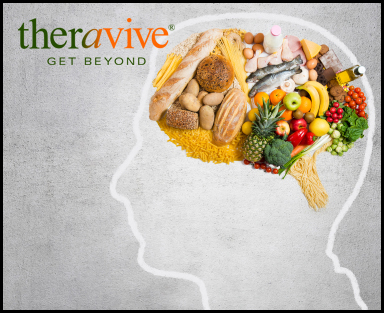 Many people make the mistake of assuming that mental health is just its own thing, but that actually isn't the case. Mental health is part of a whole. The whole body is connected and it's important to understand how this works and why our mental health can end up affecting the health of the rest of our body's health. In this blog post, we're going to explore that concept more so that you can get a solid understanding of why caring for your mental health is vital for taking care of the health of the rest of your body.
Many people make the mistake of assuming that mental health is just its own thing, but that actually isn't the case. Mental health is part of a whole. The whole body is connected and it's important to understand how this works and why our mental health can end up affecting the health of the rest of our body's health. In this blog post, we're going to explore that concept more so that you can get a solid understanding of why caring for your mental health is vital for taking care of the health of the rest of your body.
How is the Entire Body Connected?
The entire body is connected, which is why something called the "holistic health movement" has become so popular. Medical professionals are starting to see that, yes, everything in the body is connected and if one part of the body isn't working properly or at optimum health, it's going to start preventing the rest of the body from having optimum health as well. The four parts of health are emotional, mental, physical, and spiritual.
For ease of understanding, we're going to use an example to help you better understand how the body is connected, and we're going to use a mental health issue to show how the whole body could be negatively affected by it. For this example, let's say that someone has problems with Major Depressive Disorder, better known as MDD or clinical depression. Now let's break it down a bit more so that you can see how a mental illness like MDD can negatively affect every part of the self.
Mental health: Obviously, MDD itself is a mental health issue, but if it goes untreated, it can end up causing other mental health issues. For example, many people who have MDD end up having it paired with an anxiety disorder of some type, and that dual diagnosis makes it even more difficult to move forward with health care. It can be a struggle for people to work through their mental health issues, especially if they aren't receiving the care that they need.
Emotional health: Many people assume that mental health and emotional health are the same thing, and even though the two are interconnected, they are not. Keeping with our example of MDD, you may start to notice some emotional health issues that come out of the whole thing as well. You may feel more stress, you may cry more often and seclude yourself from other people. You could also feel emotionally drained and feel as if you cannot function normally in certain situations.
Spiritual health: This is one area that some people talk about, but others don't. If a faith, religion, or tradition plays any role in your life, your spiritual health is going to be affected by a mental illness or other mental health problems. You may not feel like going to your place of worship on a regular basis. You may not meditate or participate in other practices, and you may feel detached from your deity of choice. The positive energy that you may get from practicing your faith may dissipate because you're so "blocked" due to your mental health struggles.
 Physical health: Lastly, your physical health. The other parts of the "self" seem to deal with the mind, so they make sense, but a lot of people don't realize just how much of an impact mental health has on your physical health. If you are struggling with something like MDD, you may have a lack of energy, you may overeat or not eat at all. Some people will have troubles sleeping. Your immune system is compromised and you may get sick more often than you did. You're more likely to gain or lose weight, which can lead to its own set of problems, and there are a number of other things that may occur. Your mental health is so closely tied to your physical health that it's crazy, and if you don't take care of one properly, the other may start to deteriorate.
Physical health: Lastly, your physical health. The other parts of the "self" seem to deal with the mind, so they make sense, but a lot of people don't realize just how much of an impact mental health has on your physical health. If you are struggling with something like MDD, you may have a lack of energy, you may overeat or not eat at all. Some people will have troubles sleeping. Your immune system is compromised and you may get sick more often than you did. You're more likely to gain or lose weight, which can lead to its own set of problems, and there are a number of other things that may occur. Your mental health is so closely tied to your physical health that it's crazy, and if you don't take care of one properly, the other may start to deteriorate.
Obviously, it doesn't only happen with MDD - it could happen with any disorder, and it could start from any part of the circle as well. Your physical health could be in decline, and it can cause your mental and emotional health to be worse than it had been, or, if your spiritual health is dwindling, you may be more likely to worry or fall into depression. It's all linked together, and because of that, it's important to make sure that all areas of our life are well taken care of for optimal health overall.
What is the Role of Mental Health?
So, now that we know that they are all connected, what does this mean? How does this play a role in the whole? What part does mental health play when you're taking care of your whole self in a holistic manner? Why has mental health gotten more into the limelight in the past few years, especially when we're talking about our overall health? That's what we're going to look at here in this section of this article.
Only in recent years has mental health been separated from emotional health, but a lot of people still merge the two, thinking that some mental health issues are "all in your head." Granted, yes, they are "mental health issues," but you can't treat them in the same way that you treat your emotional health. In some cases, mental health issues are so dire that you need help in order to get through it, which is why our website has a number of resources that you can use.
Taking care of your mental health is important. Keeping your intellect sharp by playing games, doing puzzles, and interacting with other people in creative ways can help you to stay sharp and engaged. Social aspects of mental health are enhanced by meeting new people and interacting with them on a regular basis. Getting out of your comfort zone, as long as it doesn't cause you an immense amount of stress (and it may with certain mental health issues), is also health and can help to strengthen your mental health.
Basically, you need to keep an eye on your mental health. If there is a concern that you have, make sure that you address it when you notice it. There is nothing embarrassing about needing help, or having to address something that is related to your overall mental wellness. Everyone has something that they struggle with, and for some people, they need a little bit of help to get through it. Focus on your mental health on a regular basis and you will start to see a difference in other areas of your health in a positive way.
If you aren't sure how to take care of your whole self, or you need help getting your mental health back on track, get in touch with one of the therapists that we recommend here on our website. By getting the help that you need from a professional, you can start a journey that helps you to be wholly healthy, from the inside to the outside. Check out all of the resources that we have here on our site today and find the right mental health professional that can help you meet your needs and achieve your goals in a healthy manner.
_________________________________________________________________________________________________________________________________
Georgetown University Center for Child and Human Development. (n.d.). Body / Mind / Spirit - Framing the Issue & Holistic Health :: National Center for Cultural Competence. Retrieved June 9, 2014, from http://nccc.georgetown.edu/body_mind_spirit/framing-holistic.html
Greenberg, T. M. (2011, October 08). Why We Need a Holistic Approach to Mental Health Care. Retrieved June 9, 2014, from http://www.huffingtonpost.com/tamara-mcclintock-greenberg/psychology-and-patient-care_b_984330.html
Greenlaw, E. (n.d.). A Holistic Approach to Treating Depression: Diet, Exercise, and Talk Therapy. Retrieved June 9, 2014, from http://www.webmd.com/depression/features/holistic-medicine
Hargett, T. (1999, January 13). Result Filters. Retrieved June 9, 2014, from http://www.ncbi.nlm.nih.gov/pubmed/10196906
Zeltner, B. (2010, July 6). Mental health practitioners slowly turning to holistic practices. Retrieved June 9, 2014, from http://www.cleveland.com/healthfit/index.ssf/2010/07/mental_health_practitioners_sl.html
About the Author
 Marti Wormuth, MA
Marti Wormuth, MAMarti has a Bachelor’s Degree in Sociology and a Master’s in Communication Studies. Her favorite activities include reading, playing games, and hanging out with the students at her church. Marti volunteers with the youth ministry at her church as a teacher and mentor. Because of this, she recently started another degree, her graduate certificate in student ministries. She considers her current graduate work to be a stepping stone to becoming a youth pastor or a published author.
Professional Website:
martis-miscellany.com/